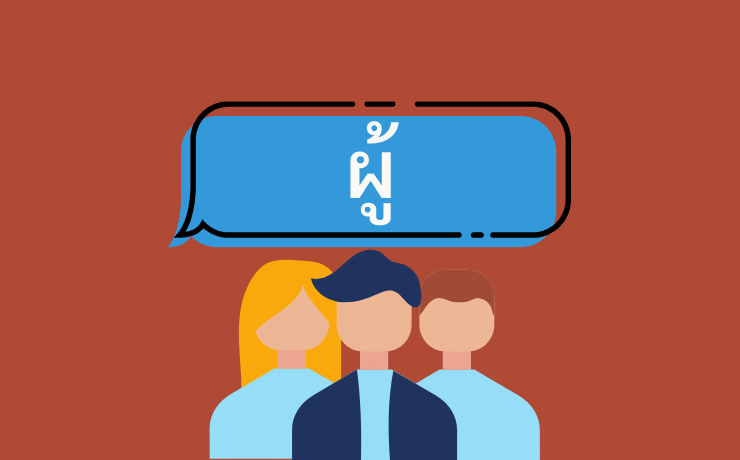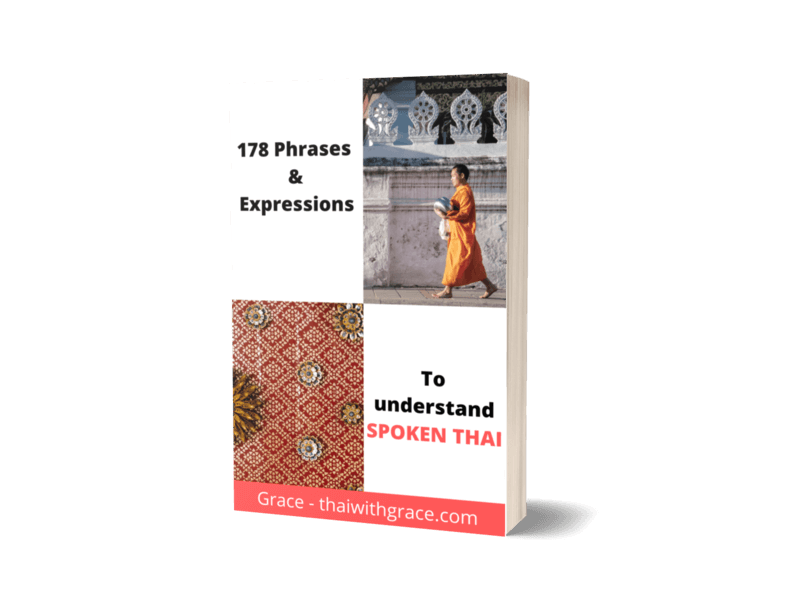ผู้ (pôo) is used as a part of many words in Thai. So you will definitely hear this word a lot.
Even if you don’t know what the entire word means if you hear (pôo) you will know it has something to do with a person or people. If you know the word that comes after pôo then you will be able to guess the meaning!
ผู้ by itself means people or person. ผู้ is used as a compound word for many other words that have to do with this. For example: ผู้ใหญ่ (pôo yài). ผู้ใหญ่ means adults. ใหญ่ (yài) means big. So big person means adult!

Let’s see some more examples:
- Woman
ผู้หญิง : ผู้ (pôo) = person, หญิง (yĭng) = female
pôo yĭng - Man
ผู้ชาย : ผู้ (pôo) = person, ชาย (chaai) = male
pôo chaai - Patient
ผู้ป่วย : ผู้ (pôo) = person, ป่วย (bpùay) = to be sick
pôo bpùay - Leader
ผู้นำ : ผู้ (pôo) = person, นำ (nam) = to lead
pôo nam - Player
ผู้เล่น : ผู้ (pôo) = person, เล่น (lâyn) = to play
pôo lâyn - Consumer
ผู้บริโภค : ผู้ (pôo) = person, บริโภค (bor-rí-pôhk) = to cosume
pôo bor-rí-pôhk - Governor
ผู้ว่า : ผู้ (pôo) = person, ว่า short for ว่าการ = to govern
pôo wâa
I hope you now understand why so many words in Thai have ผู้ (pôo) in them!

